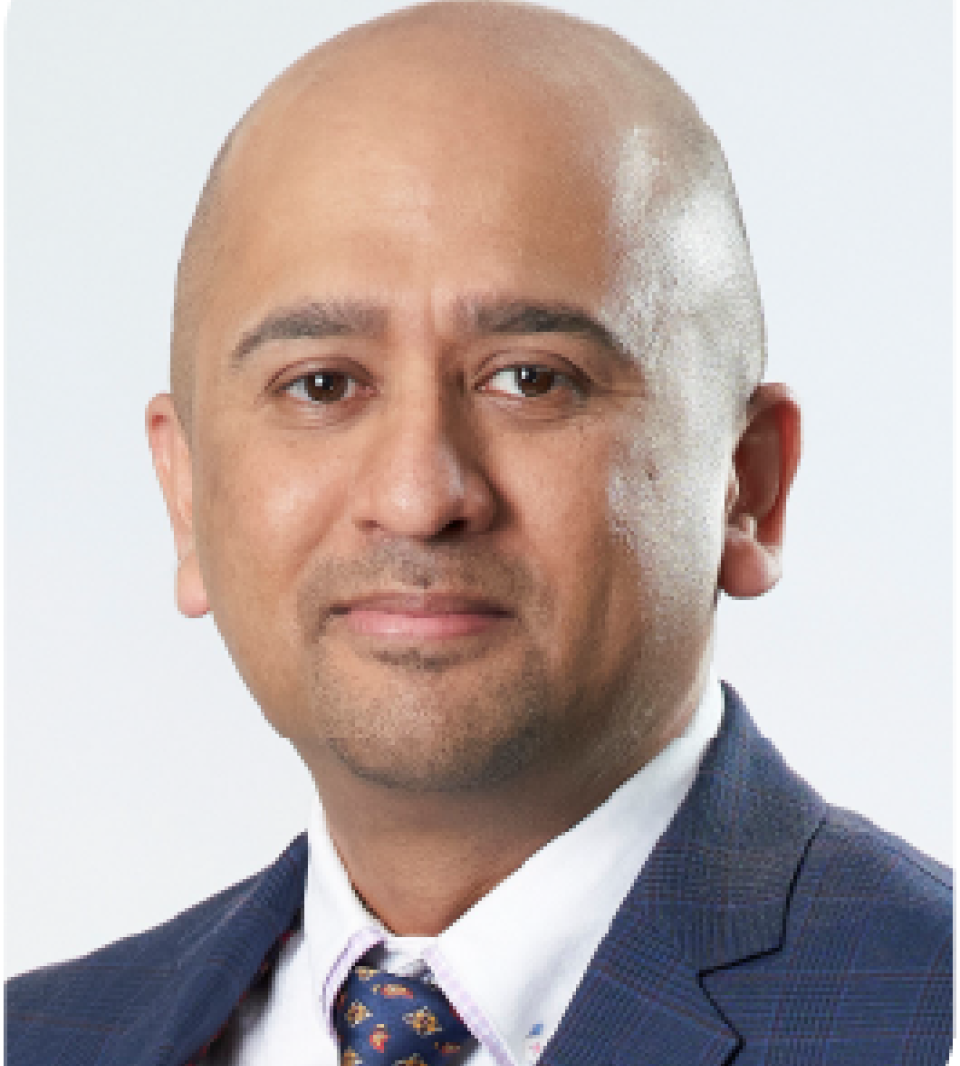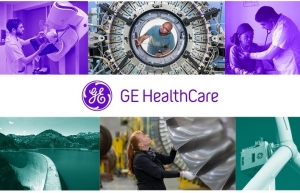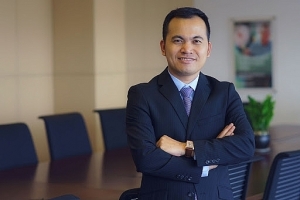GE Healthcare's vision for AI-backed radiology
 |
Within the framework of the congress, Vijay Subramaniam, general manager for Imaging in ASEAN, South Korea, Australia, and New Zealand at GE Healthcare shared the trends of AI applications in radiology and how GE’s technologies can contribute to transforming the healthcare sector in Vietnam.
What are some advantages that AI applications will bring to hospitals and their patients?
The number one advantage of AI is to augment productivity for healthcare professionals. This is particularly true for emerging markets which are facing a growing shortage of human resources in the healthcare sector.
By incorporating AI into the healthcare system, we enable medical devices to be used more intelligently, which means we can complete more examinations faster with fewer errors. AI technology also enables better diagnosis in the sense that it always provides a first-level interpretation of the diagnosis. Thus, it facilitates the radiologists to confirm the outcome of the diagnosis in a timely manner.
Another advantage is that AI can play a role in prioritising images in the context of data explosion. AI can assist in determining which images need to be read first when the emergency rooms are crowded with patients.
An AI-based imaging system can automatically detect a patient's problems and give precedence to patients who need to receive urgent care. Without AI, clinicians have to proceed one case at a time if there are numerous cases piled up, which in turn reduces the chance for the patients to receive timely urgent care.
We have identified four main classes of medical device purchasers who have the potential to take advantage of new technologies like AI.
The largest are government-funded hospitals, which account for 84 per cent of the market. Foreign-owned hospitals and clinics are also large purchasers, however, these facilities usually purchase supplies from their sponsoring country. Local private hospitals will show the strongest growth, while research and educational institutions will also account for some of the demand.
How do you see Vietnam's healthcare sector benefiting from AI-powered equipment?
The Vietnamese government is committed to rolling out universal healthcare in the country, with efforts to reach 95 per cent of the Vietnamese population by 2025. This will continue to shape the healthcare sector.
Vietnamese public hospitals rely on a state budget to upgrade their facilities, equipment, and services. The total budget for the health sector has increased but is still exceeded by the fast-growing demand. At the same time, hospitals are facing a shortage of well-qualified and experienced medical staff to meet the rising needs for healthcare.
By implementing AI-powered medical technology, Vietnam's healthcare system can provide quicker and faster access to diagnosis scans. AI technology can augment the skill and productivity of the users, thereby alleviating the shortage of healthcare workers.
In addition, the adoption of AI can help the government to spend in a more cost-effective way. In the past, if the government had to invest in the same scans as today, they had to make more purchases. An AI-powered medical device will help improve diagnostic speed and confidence, encourage collaborations across the clinical space, and improve productivity, efficiency, and patient experience.
What are the opportunities for US providers like GE Healthcare to supply cutting-edge medical devices with AI applications in Vietnam?
Demand for better healthcare in Vietnam over the past years has greatly contributed to the growth of the medical device market. According to the Ho Chi Minh City Medical Equipment Association, in 2017 Vietnam spent $1.1 billion on medical equipment imports. These were mainly comprised of diagnostic imaging equipment such as X-rays, ultrasound technology, magnetic resonance imaging technology, and computed tomography scanners, as well as equipment used for surgery.
The Vietnamese medical device market is expected to reach around $1.8 billion by the end of 2022, recording growth at a compound annual rate of 9.6 per cent during the 2017-2022 period.
The health IT sub-sector presents growing opportunities and holds high potential for US suppliers of IT hardware and electronic health record software. In March 2019, the Ministry of Health stipulated that health facilities began the process of replacing paper versions with electronic medical records. However, at present, the level of IT application is still low and uneven among hospitals. Data connection is still difficult and the process of implementing electronic records faces many obstacles.
In addition, the growing healthcare sector in Vietnam provides opportunities for US suppliers of design, engineering and management, and medical training services since local suppliers are still new to these sub-sectors and are not yet able to provide the same level of sophisticated services as international suppliers.
GE Healthcare has a plan to launch our AI applications to contribute to the development of Vietnam’s healthcare sector. Some AI-powered equipment is expected to be available in Vietnam from next year onwards. In general, all of our new AI-based applications will enable improvements such as better image quality and better diagnosis across the entire imaging portfolio.
What is GE Healthcare’s vision to transform the radiology segment with AI technology?
There are several tasks to complete before the scans, including patient positioning, data placement, and examination planning, among others. GE is simply recognising the possibility of incorporating AI across modalities. We employ AI to boost outcomes in pre-scan and employ deep learning through the entire scanning process to produce images of higher quality. Indeed, GE has made a concentrated effort to integrate AI into each stage of the examination.
Innovations in this field are also done by small companies, which are working constantly on image processing. However, to adopt AI applications, hospitals need certain training in areas including network security and data privacy. They need a really trusted vendor to enjoy the innovations and ensure the AI-based system is secure. There is an opportunity for GE to contribute to the development of these ecosystems.
Specifically, GE creates the engine for providing the full infrastructure to connect to the network, scan patients' data, protect patient data, and use AI across the platform.
The Edison Digital Health Platform developed by GE Healthcare is a central part of this approach. Edison connects the healthcare workflow across operations, development, data flows, and the use of AI-powered analytics, thereby improving the workflow and productivity of healthcare workers.
We share our customers’ mission to improve diagnoses for better patient outcomes and we believe AI-powered medical devices can help radiologists to fulfil their tasks with better results and less effort.
 | GE brand trio to shape the future of key industries GE on July 19 announced the brand names of the three future companies it will create through its planned separation into healthcare, energy, and aviation. |
 | Digital technology – new future for Vietnamese healthcare Digitalisation has opened up exciting new possibilities in medical care and capacity building. Especially, in the case of uncertainties like the COVID-19 situation, the concept of healthcare provider and practice will undergo a significant shift from the conventional setting to a more fluid application that flexes with the needs of the community. Son Pham, country manager for GE Healthcare Vietnam and CEO of GE Vietnam, shares his ideas on the role of digital technology in the Vietnamese health sector and the future. |
 | GE Healthcare aims to support healthcare development in Vietnam Studying holistic solutions such as hospital planning and capacity development and emerging technologies such as AI are considered keys for GE Healthcare to expand healthcare access in the world, including Vietnam. |
What the stars mean:
★ Poor ★ ★ Promising ★★★ Good ★★★★ Very good ★★★★★ Exceptional
 Tag:
Tag:
Related Contents
Latest News
More News
- Addressing Vietnam's energy challenges with aeroderivative gas turbines (February 28, 2023 | 09:33)
- How to sprint ahead in 2023’s worldwide energy priorities (February 08, 2023 | 13:55)
- Boosting Vietnam's grid stability through gas turbine technology (November 22, 2022 | 20:02)
- Healthcare trio collaborates to provide thousands of free breast scans (October 27, 2022 | 17:19)
- GE brand trio to shape the future of key industries (July 19, 2022 | 15:35)
- GE unveiling brand names and defining future (July 19, 2022 | 15:16)
- GE: the shortest route towards sustainability (July 18, 2022 | 08:00)
- Be proactive in an uncertain world (May 20, 2022 | 11:40)
- GE secures first 9HA combined cycle power plant order in Vietnam (May 16, 2022 | 17:06)
- 5 things that make GE a happy place to work (April 29, 2022 | 07:58)






















 Mobile Version
Mobile Version